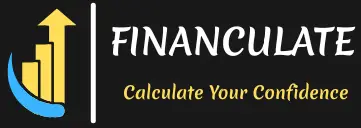Buying a home is one of the biggest milestones in life, and for most of us, it’s not something we can do without a little help. That’s where the first mortgage comes in. If you’re planning to take that exciting step toward homeownership, learning about your first mortgage is a great place to start.
While the topic might seem complicated at first, don’t worry—we’re breaking it down in a way that’s easy to understand. This post covers everything from what a first mortgage is to why it matters, and some surprising facts that might just change how you look at the whole home-buying process.
What Exactly Is a First Mortgage?
Let’s start with the basics. A first mortgage is the initial loan you take out to purchase a home or refinance an existing mortgage. This loan is backed by your property, which means if you don’t keep up with your payments, the lender has the legal right to take ownership of your home through foreclosure.
But here’s the key: it’s called a first mortgage because it has priority over any other home loans you might take out later, like a second mortgage or home equity loan. Think of it like standing in line—your primary lender is first in line to get paid back if something goes wrong.
1. Your First Mortgage Gets First Dibs
One major reason your first mortgage is such a big deal is because of its seniority status. In finance speak, it’s known as the “primary lien.” So, if you were to sell your home or face foreclosure, your first mortgage lender gets paid back before any others.
This gives lenders a bit more peace of mind, which is why they often offer better interest rates and terms on first mortgages compared to second ones.
2. You Build Equity Right Away
Every mortgage payment you make reduces your loan balance and increases the ownership stake—or equity—you have in your home. Over time, this equity can grow, becoming a valuable financial tool.
Equity can help you:
- Refinance your mortgage
- Qualify for a home equity loan
- Improve your net worth
Think of it like a savings account, except it’s tied to your property instead of a bank.
3. It’s Not Just for Buying a Home
Most people assume a first mortgage is only for purchasing a new home. But did you know you can also use it to refinance your current mortgage? If interest rates have dropped or your credit score has improved since your original loan, refinancing can help lower your monthly payments. It’s like giving your mortgage a fresh start!
4. Your Interest Rate Depends on Multiple Factors
The interest rate you get for a first mortgage just isn’t pulled out of thin air. It’s influenced by things like:
- Your credit score
- Income and employment history
- The size of your down payment
- The loan term (e.g., 15 or 30 years)
- Current market interest rates
Want to get the best deal? Work on boosting your credit score and saving up a larger down payment. Trust us—it can pay off big time.
5. It Protects the Lender (and You!)
Since a first mortgage is secured by the home itself, lenders are more likely to offer it with less strict conditions than unsecured loans. This setup protects them in case the borrower defaults, but it also protects you from higher interest rates that often come with risky loans.
And here’s a bonus: Having your mortgage paid off boosts your home equity—giving you more flexibility and borrowing power in the future.
6. You Can Still Have More Than One Mortgage
Just because you already have a first mortgage doesn’t mean you’re limited to just one loan. Homeowners can take out additional loans known as second mortgages or home equity lines of credit (HELOCs).
However, these secondary loans won’t have the same priority. If things ever take a turn and the house needs to be sold to pay off debts, the first mortgage gets cleared first.
In short—yes, you can “double dip,” but the original mortgage stays in front of the line.
7. Defaulting Has Serious Consequences
This one’s important. If you fail to keep up with payments on a first mortgage, your lender can and likely will initiate foreclosure proceedings. That means you could lose your home entirely.
This might sound scary, but it highlights the importance of borrowing within your means. Make sure your monthly payments fit comfortably within your budget. And if you ever run into financial trouble, reach out to your lender early—they may be able to help.
So…Why Should You Care About All This?
Understanding how your first mortgage works is key to making smart financial decisions. Whether you’re a first-time homebuyer or refinancing a current loan, knowing what you’re getting into gives you more control and less stress.
Let’s face it—homeownership can be overwhelming, but the more you learn, the more confident you’ll feel. Your mortgage isn’t just a debt. It’s an investment in your future, and when managed right, it can bring long-term financial growth.
Final Thoughts
Your first mortgage can open the door to homeownership and financial freedom. From building equity to securing better loan terms, it’s one of the most powerful tools in your money toolkit. But like any tool, it works best when you understand how to use it.
If you’re ready to dive deeper, check out our guide on first-time homebuyer tips to better prepare for your journey.
And remember, knowledge is power—especially when you’re about to make one of the biggest purchases of your life.
For more in-depth info, read the original article on Investopedia here.

